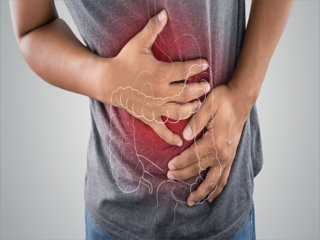Many people in this world are suffering from irritable bowel syndrome (IBS) which can cause severe abdominal pain and makes them feel uncomfortable all the time. It can create problems in their working life and it may also cause a lot of problem in their living behavior. Researchers believe atleast 20% of the world's population is suffering from IBS. It may cause too many future problems to individuals and hence can be a lifetime problem. Researchers have now identified the root cause of it that explains why people experience such pain nowadays after eating certain type of foods. There are food products which are suitable and easily digested by few individuals but it is not the case in every individual. A study was conducted on mice and humans by Guy Boeckxstaens, Professor at Katholieke Universiteit Leuven in Belgium.
The laboratory and clinical studies of his team show a mechanism that connects certain foods with the activation of histamine-releasing cells (also called mast cells) and the resulting pain and discomfort. In a healthy gut, the immune system is unresponsive to food, so the first step was figuring out what might be causing the breakdown of this tolerance, as people with IBS often report that their symptoms started after a gastrointestinal infection, such as food poisoning. Researchers started with the idea that infection, while a certain type of food is present in the intestines, could sensitize the immune system to that food.
They infected mice with a stomach bug and at the same time fed them ovalbumin, a protein found in egg white and often used as a model food antigen in experiments. An antigen is any molecule that provokes an immune response. The mice were given ovalbumin again to see if their immune systems were sensitized. The results were confirmatory: ovalbumin alone caused mast cell activation, histamine release, and digestive intolerance with increased abdominal pain. This was not in the case of mice that had not been infected with the bug and given ovalbumin.
The researchers were then able to decipher the series of events in the immune response that linked ovalbumin ingestion to mast cell activation. Significantly, this immune response only occurred in the part of the intestine infected by the offending bacteria. Professor Boeckxstaens speculates that this study suggests a spectrum of diet-related immune diseases.



